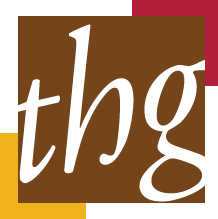We know charitable gifts can be impactful for nonprofits, providing them with the resources needed to fulfill their missions and have a positive effect on the communities they serve. With August known as Create a Will Month, we ask: What are you doing to assist donors with their estate planning?
Recent studies have revealed only 32% of American have a will– a decrease from 2023. Individuals give many reasons for not having a will, ranging from the belief that one doesn’t have enough money to being unsure of how or where to start.
While it can be difficult to inspire donors to include your organization in their estate plans, we know donors leave charitable gifts for a variety of reasons, including:
- Desire to Make a Difference: Donors want to contribute to causes they are passionate about and leave lasting impact on organizations they care about.
- Legacy Building: Donors want to create a legacy that reflects their values and passions, ensuring their impact continues beyond their lifetime.
- Fulfillment and Satisfaction: Charitable giving can provide donors with a sense of fulfillment and satisfaction, knowing they are supporting a cause they believe in.
- Encouraging Others: Some donors hope to inspire others to give by using their gift as a model for others to follow.
So, how can you assist donors with charitable giving? A great place to start is by providing donors with helpful resources. We aren’t suggesting you become estate planning experts, however, we do think it is in your best interest to provide donors with the tools they need to make the right decision for them.
– There are several collateral templates available via a quick internet search, so you can market the opportunity alongside other giving options.
– If you have a board member who works in the finance industry or insurance industry, you may collaborate with them to have an Estate Planning workshop for your stakeholders and other community members. This can be informative and help gather momentum— equipping donors with useful information and encouraging them to seek financial advice can lead to a gift.
Many donors welcome the opportunity to have a positive effect on an organization they support beyond their lifetime, and many of your donors may be prepared to have a conversation. When our firm conducts feasibility studies in preparation for an organization’s capital campaign, we often learn from our interviewees that they have already included the organization in their plans or that they are willing to have a discussion leading to a bequest. Bequests make up 8% of the approximately $557 billion philanthropic industry, meaning it’s worth your while to begin exploring this very personal and impactful strategy. We encourage you to become a trusted resource for your donors and enable them to have the greatest impact possible on your organization.
Reach out to THG to learn more.

